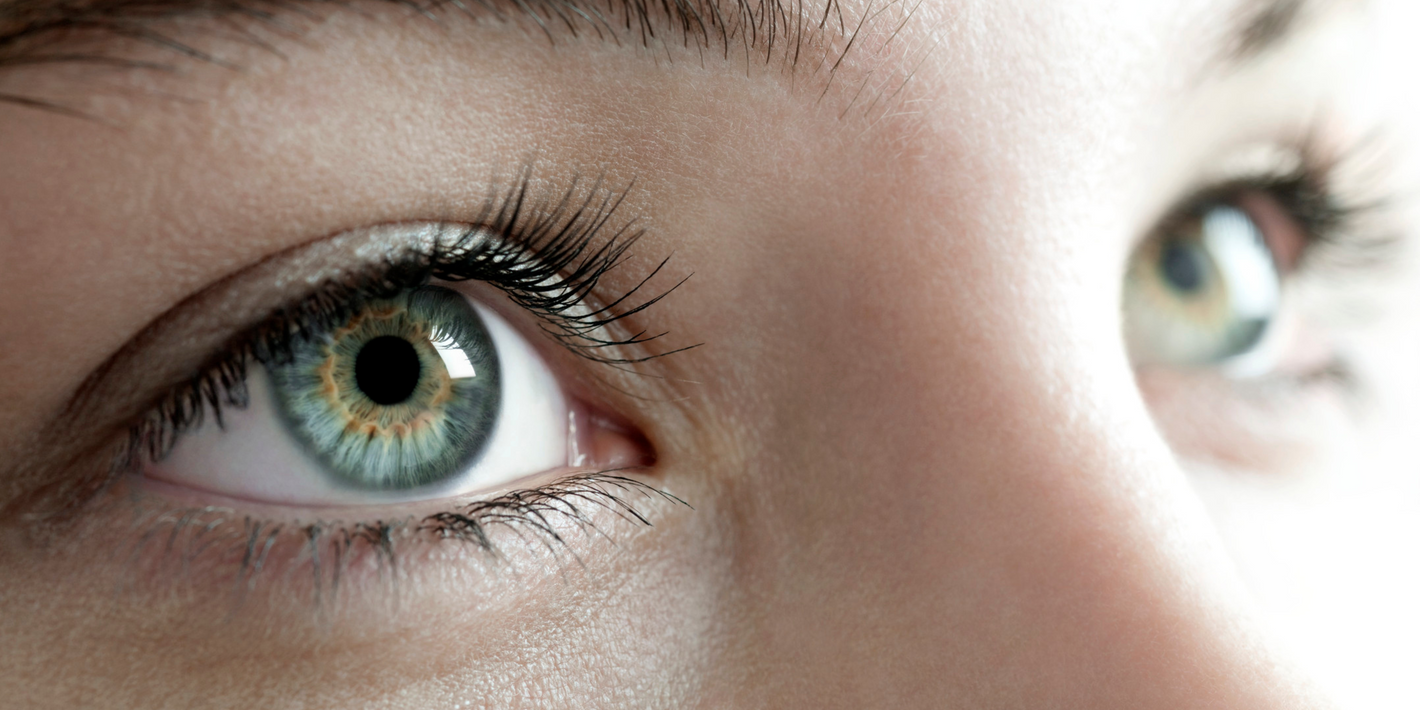
How Astaxanthin Can Help Improve Your Eyesight
Unveiling the Power of Astaxanthin for Vision Enhancement
Astaxanthin is a naturally occurring pigment found primarily in marine organisms like microalgae, salmon, shrimp, and lobster. It's part of the carotenoid family, which also includes familiar compounds like beta-carotene and lutein. Astaxanthin, however, possesses unique characteristics that may make it particularly beneficial for vision enhancement. But before delving into the science behind astaxanthin's eye-boosting potential, it's crucial to understand what it is and where it comes from.
What is Astaxanthin?
Astaxanthin is a red-orange pigment that belongs to a group of chemicals called xanthophylls. Its vibrant color contributes to the pinkish hues observed in seafood like shrimp and salmon. This carotenoid is synthesised by phytoplankton, yeast, and algae as a defense mechanism against ultraviolet light and to attract zooplankton and other organisms in the food chain.
Astaxanthin is an incredibly potent antioxidant. Research suggests that it is 10 to 100 times more powerful than other carotenoids, including lutein, zeaxanthin, and beta-carotene. But what does this mean for your eyes? This antioxidant property is the foundation upon which most of the benefits of astaxanthin are built, including those related to vision health.
The Science Behind Astaxanthin's Eye-Boosting Benefits
The benefits of astaxanthin are largely attributed to its potent antioxidant and anti-inflammatory properties. Astaxanthin's unique molecular structure allows it to span the entire cell membrane, providing comprehensive protection against oxidative stress. This is particularly important in the eyes, which are often exposed to light and oxidative stress.
Numerous studies have highlighted the potential benefits of astaxanthin for eye health. It has been suggested to help with various eye-related concerns, including age-related macular degeneration (AMD), retinal health, visual acuity, and eye strain and fatigue. Let's delve into these in more detail.
How Astaxanthin Protects Eye Health
The eyes are especially susceptible to oxidative stress due to constant exposure to light and oxygen. Over time, this oxidative stress can cause damage to the tissues of the eye and contribute to the development of certain eye conditions. This is where astaxanthin comes in. Due to its antioxidant capabilities, astaxanthin can help combat oxidative stress in the eye, offering potential protective effects.
Moreover, astaxanthin is lipophilic, meaning it's attracted to fats, which are abundant in the retina. This allows it to reach the retina effectively, where it can exert its antioxidant effects most beneficially. By protecting the eyes against oxidative damage, astaxanthin may help maintain eye health over the long term.
Combatting Age-Related Macular Degeneration: Astaxanthin's Role
Age-related macular degeneration (AMD) is a leading cause of vision loss in older adults, and it's primarily caused by oxidative stress and inflammation. As an antioxidant and anti-inflammatory agent, astaxanthin could potentially help combat these underlying causes.
Studies suggest that the antioxidant properties of astaxanthin could be especially beneficial in protecting the retina's photoreceptor cells, which are critical for vision and are severely affected by AMD. However, while these findings are promising, more research is needed to establish the definitive role of astaxanthin in AMD prevention and treatment.
Improving Visual Acuity and Sharpness with Astaxanthin
Visual acuity refers to the sharpness of vision or the ability to see details at both close and far distances. Several studies have suggested that astaxanthin could play a role in improving visual acuity. One particular study found that individuals who took astaxanthin daily for a year saw improvements in their visual acuity and depth perception.
The underlying mechanism may be due to astaxanthin's potential to improve blood flow to the retinal capillaries, nourishing the eyes and promoting overall ocular health. However, more research is needed to understand further and validate these effects.
Relieving Eye Fatigue and Strain: Astaxanthin's Soothing Effects
In today's digital world, many of us spend hours staring at screens, leading to eye strain and fatigue. Promisingly, research suggests that astaxanthin may help alleviate these symptoms. A study conducted on individuals who used visual display terminals found that astaxanthin significantly reduced symptoms of eye strain, such as heaviness, soreness, dryness, and blurry vision.
While the exact mechanism isn't fully understood, it's proposed that astaxanthin's potent antioxidant and anti-inflammatory properties play a role. Moreover, by improving the blood flow to the eyes, it may help remove waste products more efficiently, reducing strain and discomfort.
Astaxanthin and Retinal Health: Enhancing Night Vision and Light Adaptation
The retina, particularly the region known as the macula, plays a crucial role in our ability to see clearly. It's responsible for central vision and color perception, and it's densely packed with photoreceptor cells that react to light.
Emerging research suggests that astaxanthin might improve retinal health and thereby enhance night vision and light adaptation. Although the precise mechanisms are still under investigation, some researchers speculate that astaxanthin's ability to protect the retina from oxidative stress, enhance blood flow, and potentially stimulate photoreceptor cells could be contributing factors.
Astaxanthin and Eye Inflammation: Alleviating Dry Eyes and Irritation
Dry eye syndrome is a common condition characterised by insufficient tear production or quality, leading to eye discomfort and inflammation. Research indicates that astaxanthin could help alleviate symptoms of dry eye syndrome, such as irritation, redness, and blurry vision.
One study found that astaxanthin, combined with other carotenoids, could significantly improve tear production and reduce symptoms of dry eye. The anti-inflammatory properties of astaxanthin might also play a crucial role in this context, as inflammation is a key factor in dry eye syndrome.
axanthin could play a role in improving visual acuity. One particular study found that individuals who took astaxanthin daily for a year saw improvements in their visual acuity and depth perception.
The underlying mechanism may be due to astaxanthin's potential to improve blood flow to the retinal capillaries, nourishing the eyes and promoting overall ocular health. However, more research is needed to further understand and validate these effects.
Relieving Eye Fatigue and Strain: Astaxanthin's Soothing Effects
In today's digital world, many of us spend hours staring at screens, leading to eye strain and fatigue. Promisingly, research suggests that astaxanthin may help alleviate these symptoms. A study conducted on individuals who used visual display terminals found that astaxanthin significantly reduced symptoms of eye strain, such as heaviness, soreness, dryness, and blurry vision.
While the exact mechanism isn't fully understood, it's proposed that astaxanthin's potent antioxidant and anti-inflammatory properties play a role. Moreover, by improving the blood flow to the eyes, it may help remove waste products more efficiently, reducing strain and discomfort.
Astaxanthin and Retinal Health: Enhancing Night Vision and Light Adaptation
The retina, particularly the region known as the macula, plays a crucial role in our ability to see clearly. It's responsible for central vision and color perception, and it's densely packed with photoreceptor cells that react to light.
Emerging research suggests that astaxanthin might improve retinal health and thereby enhance night vision and light adaptation. Although the precise mechanisms are still under investigation, some researchers speculate that astaxanthin's ability to protect the retina from oxidative stress, enhance blood flow, and potentially stimulate photoreceptor cells could be contributing factors.
Astaxanthin and Eye Inflammation: Alleviating Dry Eyes and Irritation
Dry eye syndrome is a common condition characterised by insufficient tear production or quality, leading to eye discomfort and inflammation. Research indicates that astaxanthin could help alleviate symptoms of dry eye syndrome, such as irritation, redness, and blurry vision.
One study found that astaxanthin, combined with other carotenoids, could significantly improve tear production and reduce symptoms of dry eye. The anti-inflammatory properties of astaxanthin might also play a crucial role in this context, as inflammation is a key factor in dry eye syndrome.
Incorporating Astaxanthin into Your Eye Health Routine: Dosage and Considerations
After considering all the potential benefits, you might be wondering how to incorporate astaxanthin into your routine. While there isn't a universally accepted dosage, most studies have used daily doses between 4-12 mg, showing promising results without significant side effects. However, it's essential to consult with a healthcare provider before starting any new supplement regimen, especially if you have existing health conditions or are taking other medications.
Astaxanthin is typically available as a supplement in capsule or softgel form. It can also be obtained from certain foods, with wild Pacific salmon being one of the richest dietary sources.
Balancing Factors and Trade-offs
Like any dietary supplement, consuming astaxanthin for eye health comes with its considerations and trade-offs. While it is generally recognised as safe, with very few reported side effects, individual reactions can vary. Moreover, while astaxanthin has been studied extensively in vitro (in the lab) and in animal models, human studies have been limited, and more extensive clinical trials are needed to ascertain its efficacy and safety profile fully.
Astaxanthin is fat-soluble, meaning it requires dietary fat for proper absorption. Therefore, it should ideally be taken with a meal containing healthy fats for optimal absorption. If one's diet is low in fat, this could impact the absorption and efficacy of astaxanthin, which is a trade-off that needs to be considered.
Furthermore, while astaxanthin is a potent antioxidant and anti-inflammatory agent, it's not a standalone solution for eye health. A balanced diet rich in a variety of nutrients, along with lifestyle factors like adequate rest, maintaining a healthy weight, and avoiding smoking and excessive alcohol, are equally important for maintaining good eye health.
The Impact on Decision Making
When making decisions about incorporating astaxanthin into one's routine for improving eyesight, several factors should be considered. First, the current state of one's eye health and overall health is crucial. For those with pre-existing eye conditions or other health issues, it's especially important to consult with a healthcare provider before beginning any new supplement regimen.
The body of research supporting astaxanthin's benefits for eye health is growing, but it's essential to balance this with the understanding that more research is needed, particularly in humans. The potential benefits must be weighed against the possible trade-offs and challenges, including any side effects, interactions with other medications, cost, and lifestyle adjustments needed for optimal absorption.
Finally, it's important to remember that supplements like astaxanthin are not a substitute for a balanced diet and healthy lifestyle, which play a foundational role in maintaining good eye health. Consider astaxanthin as a potential ally in your journey to enhanced vision, but one that is part of a broader, holistic approach to health and wellbeing.
Conclusion
Astaxanthin, a potent antioxidant carotenoid, has emerged as a potential ally in promoting eye health and improving vision. Its strong antioxidative and anti-inflammatory properties, coupled with its unique ability to cross cell membranes and reach the retina, make it a promising candidate for combatting eye-related concerns such as age-related macular degeneration, eye strain, and fatigue, and visual acuity.
While the existing body of research paints a promising picture of astaxanthin's potential benefits, it's crucial to acknowledge that more human trials are needed to solidify these claims and fully elucidate the mechanisms at work. The complexity of the human body and the multitudes of factors influencing eye health necessitates an understanding of astaxanthin's role within a broader, holistic approach to eye health.
From the trade-offs associated with fat-soluble supplements to the challenges of bioavailability and the nuances of individual health, decisions about incorporating astaxanthin into one's eye health routine should be made thoughtfully. Moreover, astaxanthin should be seen as an adjunct to a balanced diet and a healthy lifestyle, not a replacement.
Ultimately, the power of astaxanthin for vision enhancement is a burgeoning area of research with exciting possibilities. As science continues to unveil the benefits of this potent carotenoid, individuals seeking to maintain and improve their eye health have a potentially powerful tool at their disposal. It's a bright future for astaxanthin and our understanding of its role in ocular health.





